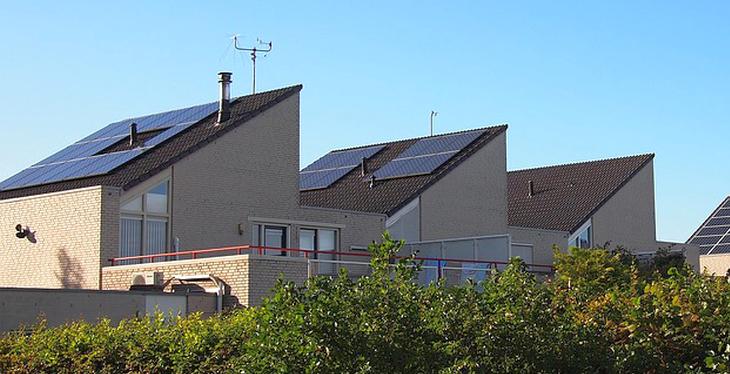In a response by the Ministry of Public Finance to Greenpeace Romania, spokesman Cristian Marin placed the institution as a mere executor of the legislation in place, putting in brackets the ministry’s capacity to propose and produce legislative acts. With this reserve, to which I will return at the end, the MFP message is clear and clarifying in several respects.
Make money from electricity produced, so you’re an economic agent!
According to the Ministry of Finance, the decision of the European Court of Justice in Case C-219/12 states that making money from independent power storage capability on or adjacent to a privately‑owned house used for private residential purposes, on a continuing basis, falls within the notion of “economic activity”.
Therefore, the reference to the Fiscal Code makes sense, with all its implications: all revenues are taxed, the tax identification code and the annual income declaration are mandatory. For these, you must register in the Trade Register as an authorized natural person (PFA) or as an entrepreneur owner of an individual enterprise.
The decision of the European Court of Justice invoked by MFP also highlights something else. In Romania, the fight is being made to ensure that the production and sale of domestically produced electricity is not treated as an economic activity. In the mentioned case, the applicant – a natural person – wanted his economic activity to be recognized as such in order to be able to deduct the VAT paid on the acquisition of photovoltaic production equipment, with the argument that he was a VAT payer on the electricity supplied into the grid. It should be pointed out that in Austria these deliveries are remunerated at the market price, the same price at which the individual purchases electricity from the grid for covering the household needs which exceed his own production.
Financial netting is totally disadvantageous…
In Romania, the retail price of electricity produced by individuals has to be set by the National Energy Regulatory Authority (ANRE), says law 220 from 2008. The proposal under discussion at the moment says that this price is equal to that set for the distributors technological consumption, i.e. 0.21 lei per 1 kWh. In addition, this would be offset by the distribution tariff of 0.14 lei per kWh, in a financial netting which is totally economically disadvantageous, for it make almost impossible for small electricity producers to amortize their investment.
… and the quantitative netting is not an option
Greenpeace brings into discussion a form of quantitative netting, which would allow the prosumer to pay only for the difference between the volumes of electricity injected into the grid and that consumed for the household’s needs. The decision of the European Court of Justice invoked by MFP seems to eliminate this option, as well, as it states that „the electricity supply activity […] takes place independently of the activity whereby the operator of the photovoltaic installation takes electricity from the network for his household needs”, both seen as stand-alone economic activities, distinctly and individually subject to taxation.
Where is the support for prosumers?
Under these circumstances, the only support that small household electricity producers receive is that provided in Article 14 of Law 220 from 2008, which states that incumbent suppliers are obliged to purchase this electricity “under the conditions established by ANRE” and complying with the provisions of legal regulations in Romania. And these provisions are those outlined above! There are also the green certificates, but for getting these, the individual also needs to become an authorized person, that is, a legal person!
In a public intervention in February, Viorel Alicuş, director within ANRE, mentioned an appeal from the Authority to the Ministry of Finance: “We have sent letters to Finance and we are trying to insist so that this issue becomes more flexible and less bureaucratic, i.e. to eliminate the obligation to be PFA, but simply a natural person. We already have legislation for small agricultural producers, and as it works for them, we believe it could also work here”, said Alicuş.
A special law would therefore be necessary for prosumers, which, in a manner similar to the provisions introduced in 2014 by Law 145 for small agricultural producers, would allow the application of a specific taxation regime on the basis of a prosumer card.
How it works for the small farmers
Law 145 defines the economic activity in the agricultural sector (“the activity carried out on its own farm / household by an individual farmer for obtaining agricultural products that exceed their own consumption requirements and is intended for sale on the market”) and states two main mandatory documents: the producer card and the marketing certificate for agricultural products.
Under such a law, specific tax obligations could be imposed on natural persons who make income from the sale of electricity they generate, with a favorable income tax regime (zero for quantities under a certain level), the elimination of the social security contribution (CAS), of the social security health insurance contributions (CASS) and all related declarations, a VAT exemption under a certain level (in volume or value), including exemption from any reporting on this subject. All these facilities apply to small farmers, and since last summer cards and marketing certificates have a longer validity while the procedure for their issuance has been simplified so as to reduce the financial and bureaucratic effort imposed on small farmers.
It looks the same, but it isn’t so…
To what extent can the model of small trade with agricultural products be replicated in the field of small electricity production? It is difficult to say, in the absence of discussions on this subject, where the regulator, distributors and suppliers analyze the specific differences, including the impact on distribution networks, the potential impact on the transport grid, the impact on demand predictability and therefore on the supply activity. We can anticipate that distributors could claim that they should be rewarded for ensuring, as they are required by law, taking over the small electricity production. Similarly, Transelectrica could mention the systemic risk introduced by such non-dispatchable power generation, that could increase considerably in a few years with fiscal support and based on ever-cheaper technologies.
The blockage that has lasted for years is also related to the fact that every public institution with attributions in supporting the development of small domestic electricity production has avoided taking full responsibility. It is symptomatic that the Ministry of Finance’s response we have started this this commentary from does not attempt in any way to propose a solution or to take an initiative, while it simply accepts the public accusations and criticisms from ANRE, from the Minister of Energy and from the few prosumers lost in the interstices of a jammed administration.
A political decision is needed, namely to accept that the losses in the state budget by reduced revenues from VAT, taxes and excises applied to the electricity consumption (potentially) transferred into non-taxed self-consumption may be less than the revenues from input VAT and taxes on activities such commercialization, installation and maintenance of photovoltaic systems, for example. This could lead to the adoption of a normative act in line with Law 145 of 2014 and would create the legal framework for the Ministry of Public Finance to be friendlier with prosumers. Similarly, there is a need for a more focused discussion on already functioning models in other European countries where the prosumers segment develops within the same legal limits as MFP invokes.
But especially, a good and honest modeling of the medium and long-term impact that small domestic production can have on the national energy system is needed. Otherwise, we are likely to introduce support for small, but many investments distributed across the country, which can lead to uncontrolled and unmanageable evolutions at national level, as we have already had in the field of renewable energy.

